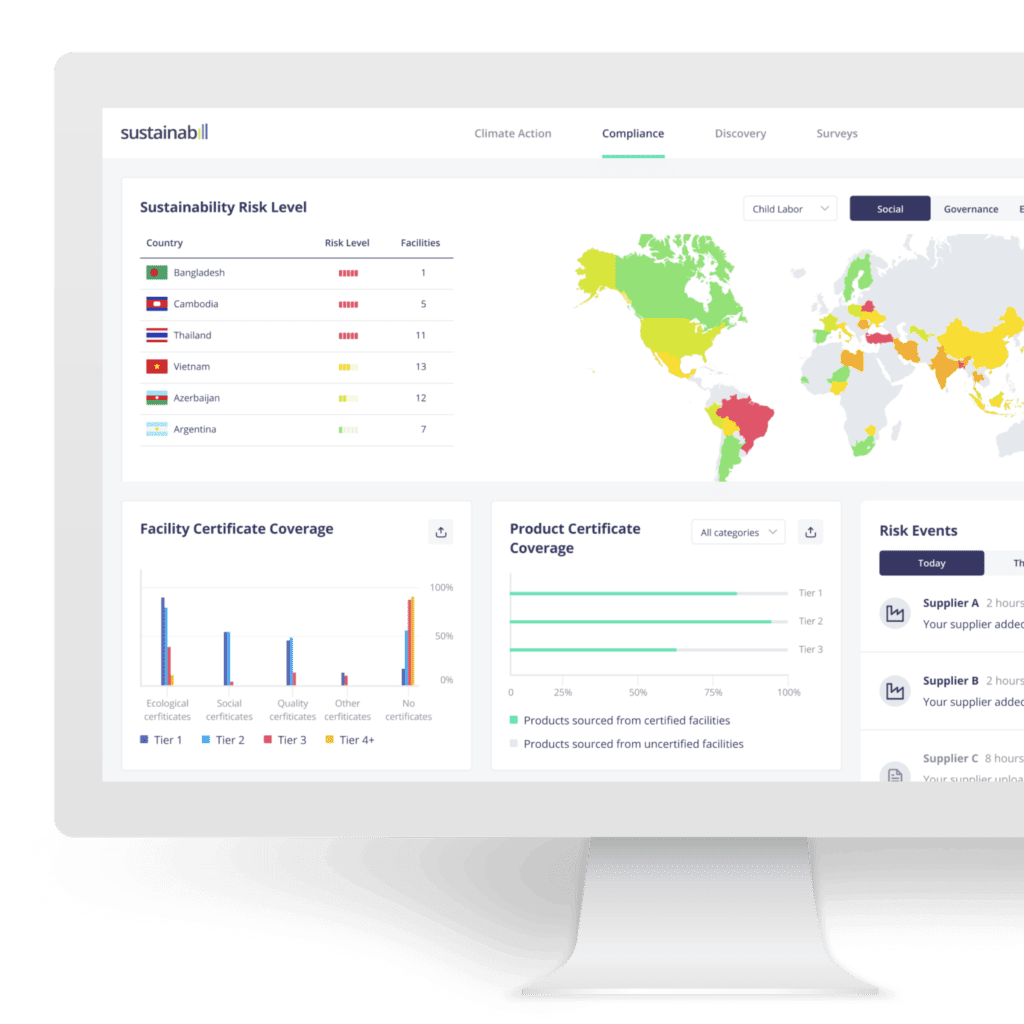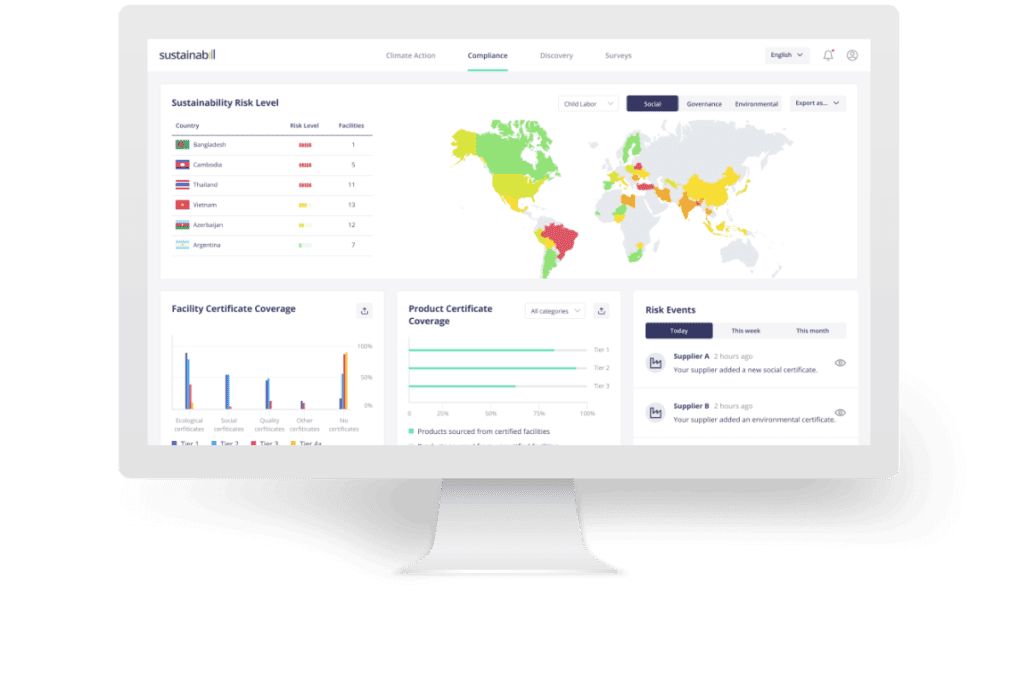What are the most severe risks?
Environmental and societal risks are globally the most dominant according to the Global Risks Report from the World Economic Forum. “Climate Action Failure”, “Extreme Weather”, “Biodiversity loss” are perceived as the most severe risks on a global scale over the next 10 years – followed by “Social cohesion erosion”, “Livelihood crises”, and “Infectious diseases”. The COVID crisis has significantly increased societal concerns. In addition, the risk of failure to address necessary climate action has increased by 25.4 % since the beginning of the COVID-19 crisis. Following the report, failure to address climate change has consequences for almost every other known risk – it is a threat multiplier.
Do we need any further proof that we need to focus NOW on sustainable development in EVERY political or economic discussion?
What does this mean for businesses and supply chains?
From the business perspective, the report states that businesses need to fully understand climate implications on their business to be able to address the diversity of risks. It is mutually important to create a more effective cross-sector collaboration that contributes to well-being and prosperity for society, the report states.
If we look at supply chains, business interruption risks spurred by the COVID-19 crisis are unsurprisingly the dominant topic. According to the WEF, companies have sought to find ways to contribute to the resilience of the countries where they operate. There are opportunities on four levels: 1) look at business interruption risks across supply chains, 2) collaboration for more broadly scoped codes of conduct for best-practice in future crises, 3) put importance on the resilience of workforces and communities and 4) take an active role in addressing large-scale public policy changes affecting business.
What are our conclusions?
Combining all this with what we learn from our daily work on sustainable supply chain, we derive the following aspects. Business resilience, climate action, societal concerns – no matter the angle we take, supply chains always play a crucial role.
- Supply chains make up for over 80% of global emissions: It is time for true climate action in the supply chain aiming at reducing emissions beyond the generic calculation of #scope3 footprints and their offsetting.
- Transparency in the supply chain is not only a sustainability topic anymore. It ensures business resilience.
- Sustainability and human rights due diligence are important business aspects considering the societal risks we are facing. Looking at supplier engagement holistically and focusing on collaboration to take action for greater resilience is an essential element for reducing risks.










